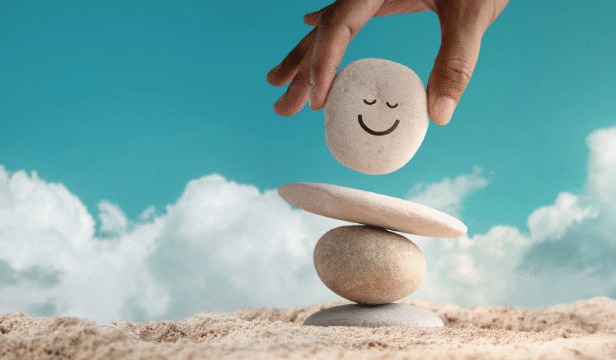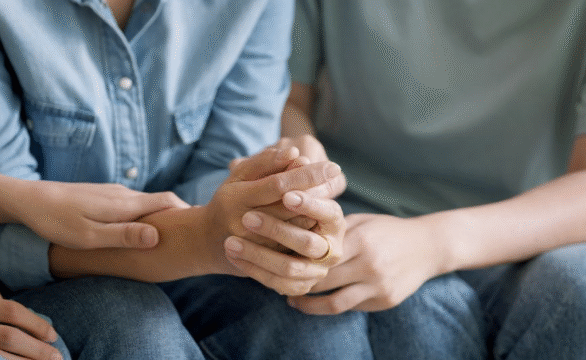Emotions play an essential role in shaping our daily experiences, influencing the way we think, act, and connect with others. Yet many people move through life without pausing to truly understand the emotions they carry within themselves. Reflection is the gentle practice of looking inward, taking time to notice feelings, and considering what they mean. By reflecting on emotions, we build emotional awareness, a skill that not only enhances personal growth but also strengthens relationships and supports mental well-being.
At its core, reflection is about creating space. Life often moves quickly, filled with responsibilities, noise, and constant stimulation. Without moments of quiet thought, emotions may remain unrecognized or misunderstood, leading to unnecessary stress or reactive behaviors. Reflection invites us to pause, step back from the rush of daily life, and listen to our inner world. In doing so, we learn to recognize patterns, uncover triggers, and understand the deeper reasons behind our responses.
Emotional awareness is more than simply noticing whether you feel happy or sad. It involves recognizing the subtle layers of emotion that can exist beneath the surface. For example, irritation might mask underlying fatigue, or worry may stem from a deeper sense of insecurity. By reflecting carefully on these feelings, you begin to notice their origins and the ways they influence your choices. This awareness allows you to respond with greater understanding rather than reacting automatically.
Reflection also creates a sense of empowerment. When you are unaware of your emotions, they can control your decisions without you realizing it. Perhaps you snap at someone because of hidden stress, or you withdraw from opportunities because of unexamined fear. Reflection changes this dynamic. By pausing to ask yourself, “What am I feeling right now?” or “Why am I reacting this way?” you shift from being ruled by emotions to being guided by them. Awareness does not eliminate feelings but instead transforms them into valuable information.
One of the most effective ways to practice reflection is through journaling. Writing down thoughts and emotions provides clarity, helping you see them from a new perspective. A journal becomes a safe space where you can explore experiences honestly without judgment. Over time, reviewing past entries can reveal emotional patterns you might not notice otherwise. For example, you may discover that certain environments or people consistently bring out specific emotions. Recognizing these patterns gives you the opportunity to make intentional choices about how to engage with them.
Another method of reflection involves quiet contemplation. Setting aside even a few minutes each day to sit in silence can help you observe your thoughts and emotions as they arise. This is not about forcing yourself to empty the mind but about gently noticing whatever comes up. By reflecting in silence, you create a calm space where feelings can surface without being rushed. This practice deepens your connection to yourself and builds the habit of checking in regularly with your emotional state.
Conversations can also serve as a form of reflection. Speaking with a trusted friend, family member, or counselor allows you to process emotions aloud. Often, the act of explaining how you feel brings clarity that is difficult to achieve alone. When someone listens with empathy, it encourages you to dig deeper into your emotions, leading to greater self-awareness. Sharing reflections with others also nurtures connection, reminding you that emotions are a natural part of being human.
The role of reflection in emotional awareness extends beyond personal growth. It also has a profound impact on relationships. When you understand your own emotions, you become better equipped to communicate them clearly and respectfully. Instead of expressing anger in a way that causes harm, you can say, “I feel frustrated because I need more support.” This level of self-awareness reduces misunderstandings and fosters healthier interactions. Additionally, by reflecting on your own emotions, you develop greater empathy for others. Recognizing the complexity of your own feelings makes it easier to appreciate the emotions of those around you.
Reflection supports resilience during difficult times. Life inevitably brings challenges, and strong emotions can feel overwhelming. By practicing reflection, you build the ability to step back, observe your feelings, and navigate them with greater steadiness. For example, during moments of grief, reflection allows you to honor your sadness while also noticing small moments of comfort or hope. This balanced awareness makes it possible to process emotions without being consumed by them.
In addition to resilience, reflection enhances decision-making. Many choices in life are influenced by emotions, sometimes unconsciously. By reflecting, you gain insight into whether a decision is driven by fear, excitement, pressure, or genuine alignment with your values. This clarity helps you make choices that are not only practical but also emotionally healthy. Over time, you learn to trust your inner wisdom, guided by a deeper awareness of your emotional landscape.
It is important to note that reflection does not mean dwelling endlessly on emotions or overanalyzing every situation. Healthy reflection balances awareness with kindness toward yourself. If you notice feelings of guilt, anger, or sadness, the purpose of reflection is not to judge yourself but to understand what those emotions are telling you. By treating your inner world with compassion, you create a supportive environment where awareness can grow without fear.
The role of reflection in emotional awareness is ultimately about cultivating harmony between the mind and heart. Reflection turns emotions from something mysterious or overwhelming into something meaningful and informative. It is a practice of curiosity, patience, and openness. Over time, the consistent habit of reflection strengthens your relationship with yourself, making you more grounded, compassionate, and resilient.
Imagine living each day with the ability to notice when stress begins to rise, to pause and reflect on its source, and to choose a calm response. Picture yourself being able to recognize when joy appears and to fully savor it rather than letting it pass unnoticed. This is the gift of reflection: the opportunity to live with greater presence and awareness, embracing the full spectrum of emotions with understanding and care.
In a world that often encourages constant motion and quick reactions, reflection offers a gentle reminder to slow down and look inward. By practicing reflection regularly, you not only become more aware of your emotions but also more attuned to the richness of your inner life. This awareness enriches your well-being, deepens your relationships, and allows you to approach life with clarity and balance.
Through reflection, emotional awareness becomes less of a distant goal and more of a natural part of daily living. With each pause, each moment of noticing, and each act of compassion toward yourself, you strengthen your ability to navigate the complexities of life with grace. Reflection is not a luxury but a vital practice, one that supports emotional health and opens the door to a more meaningful and peaceful way of being.






